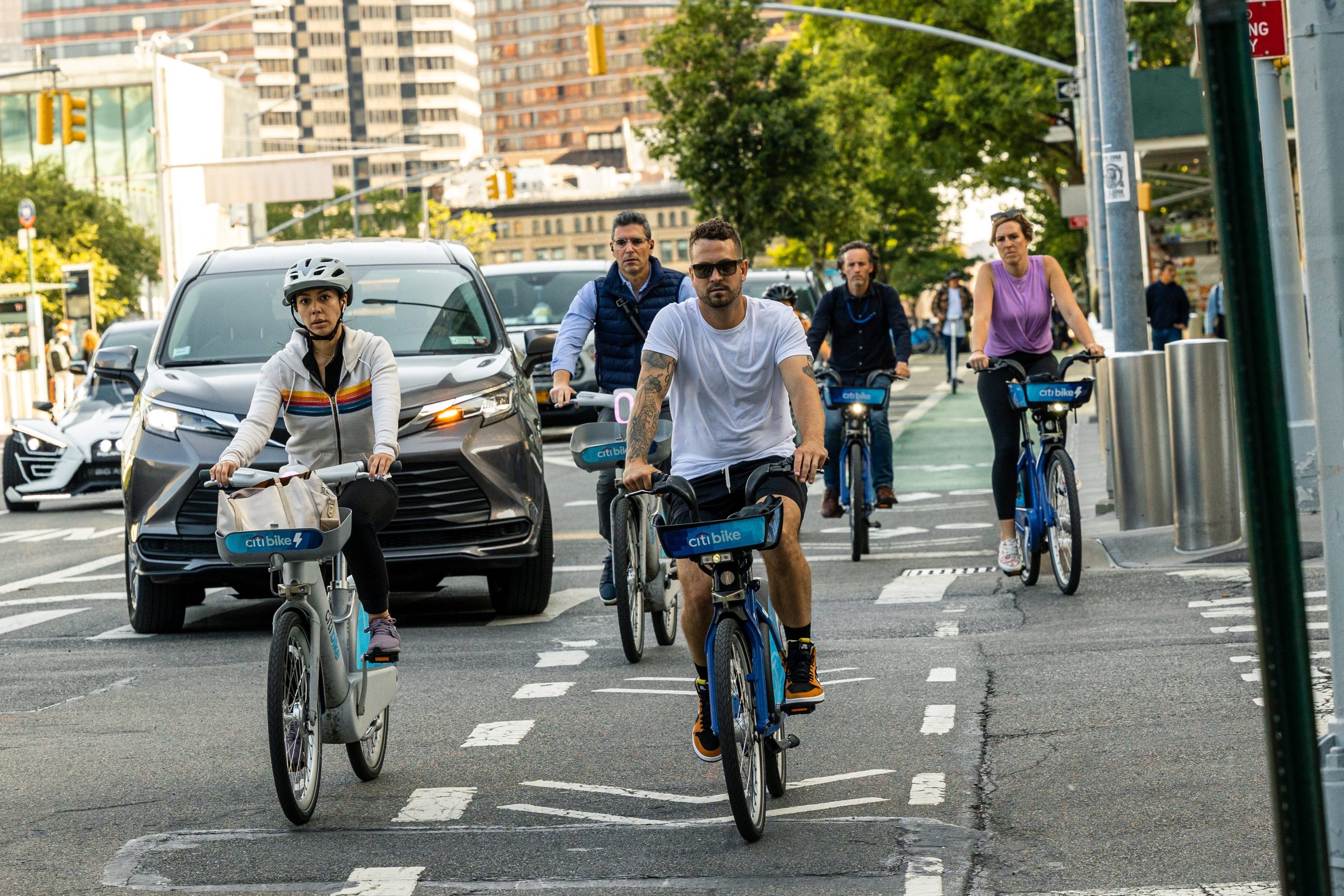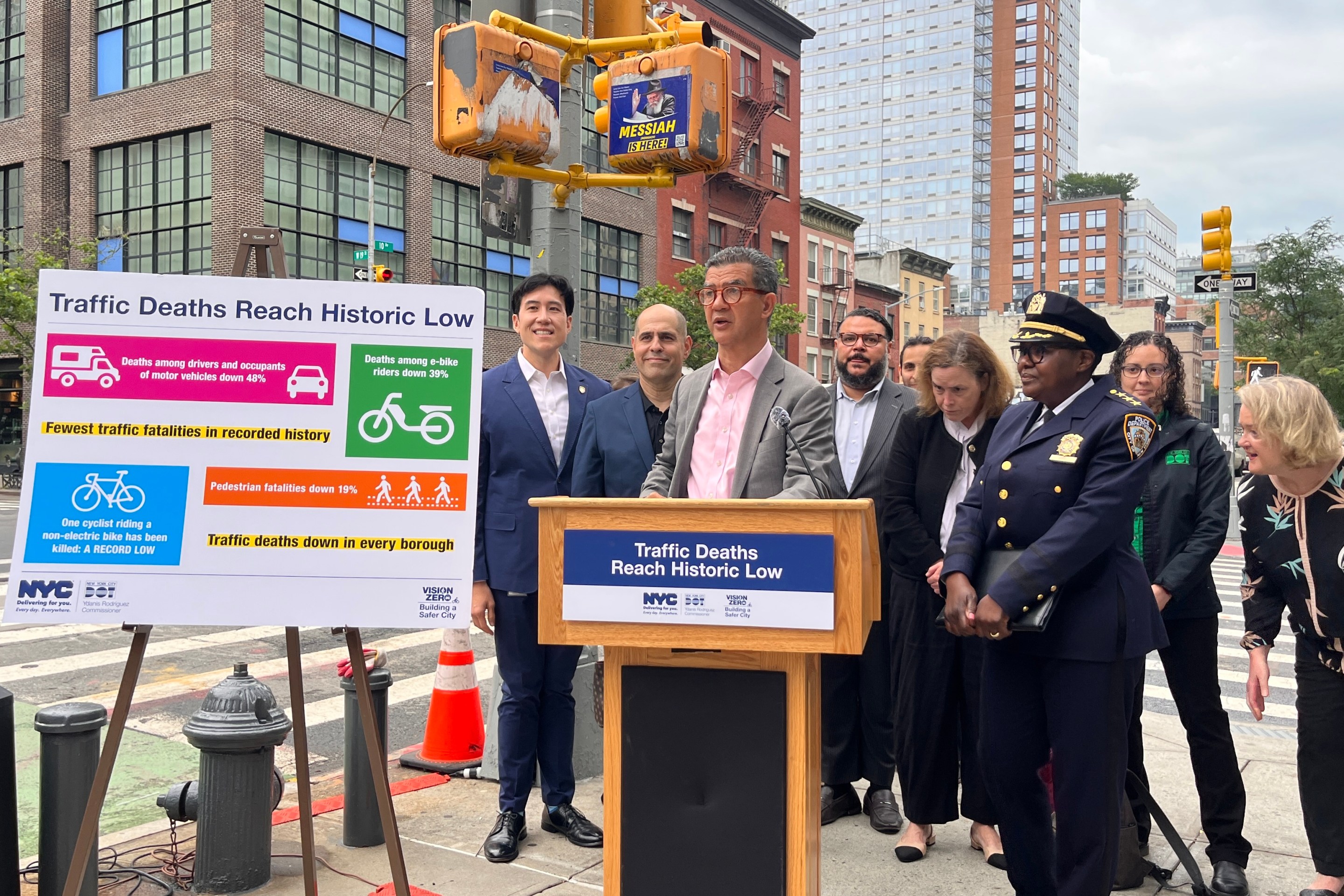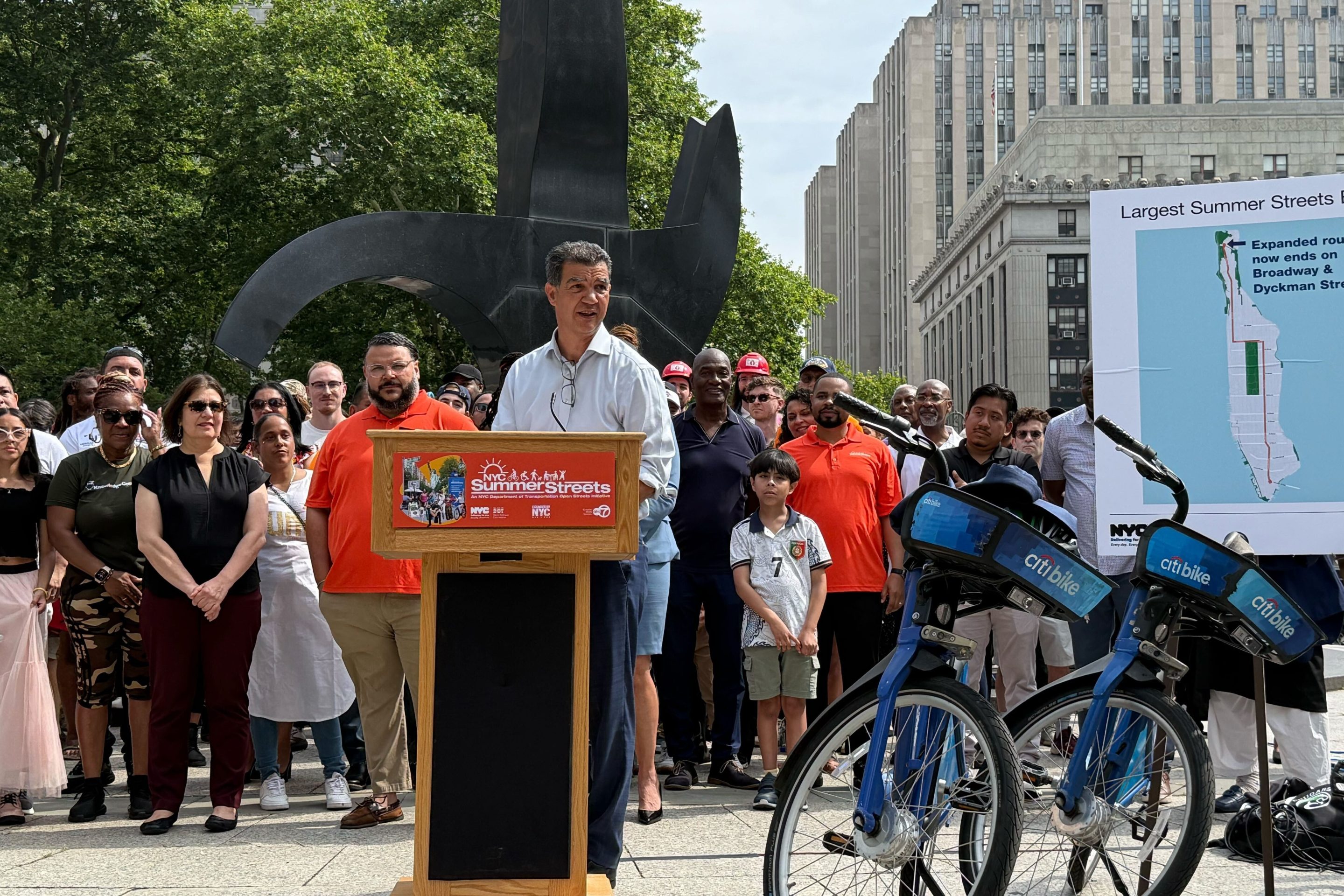Kevin DeGood of the Center for American Progress and Deron Lovaas of NRDC join the podcast this week to talk about rules proposed by U.S. DOT to measure congestion and greenhouse gas emissions. These rules matter because they'll create new feedback loops for transportation agencies -- the feds can create incentives to reduce car trips and carbon pollution if they choose. A draft released in April was not very encouraging, but the final rules could be much better.
Kevin starts us off with a look at the rulemaking process and why it matters. He helpfully explains the draft congestion measure, called “Annual Hours of Excessive Delay Per Capita,” which is quite a mouthful and, unfortunately, a car-centric way to go about measuring traffic. Kevin discusses possible alternatives to that metric, as well as the evolution of data gathering that enables better measurement of transportation projects in general.
In the second half of the show Deron discusses the options for measuring carbon emissions, whether from the tailpipe or the well head, and which states are already ahead of the curve in terms of addressing greenhouse gas emissions in transportation policy.
You can weigh in on the draft rules until August 20 -- listen in and learn what's at stake.





